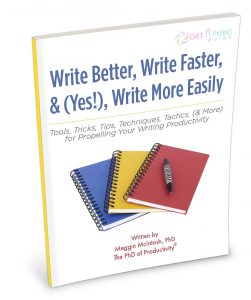What Do You Wish Someone Would Say to You About Your Writing? Part II by Meggin McIntosh, PhD
 Recently, I asked a group of writers what they wish someone would say to them about their writing. As you read some of their responses, think about what you wish someone would say to YOU about YOUR writing. I’ll have another thought about that at the end of this list of ten, so read on…
Recently, I asked a group of writers what they wish someone would say to them about their writing. As you read some of their responses, think about what you wish someone would say to YOU about YOUR writing. I’ll have another thought about that at the end of this list of ten, so read on…
- I actually have five: “You inspire me.” “Your article helped me so much.” “I love the way you write.” “I always learn something interesting shared by you.” “I wish I could write like you.” (shared by Janna M. Crews)
- I wish someone would say, “Get in there and start (or keep going) TODAY!” (shared by Suzi Stormon)
- On a pretty down to earth level – these are the things I want to hear when someone reads my stuff: “Your writing made me think.” “Your writing made me laugh.” “Your writing made me cry.” I want my writing to get to the reader where s/he lives and be the lens that lets them see it in a new way. (shared by Beverly Delidow)
- “You have inspired me.” (shared by Barbara Boone)
- I wish for a sharp editor who points out sections or sentences that need re-working as well as those sections that work well. That helps me grow as a writer. (shared by Kerry Seymour)
- “The ideas and messages in your book left me thoughtful, intrigued, and motivated. The words spoke to my heart and mind; they gave me power and energy. This book has made a difference in my perceptions and way of thinking.” (shared by Gini Cunningham)
- The most memorable comment I got was from a reviewer for my resubmitted paper that was about a very different (new) mechanism that the usual. It had been rejected previously because the reviewers simply did not follow the new experiments and ideas. So I rewrote it with a lot of effort. The reviewer of the resubmitted manuscript said something like “Thank you for explaining your work so clearly”. For scientific writing, especially as fields get complex and diverse, I think that is high praise. For me, writing is not easy and I really have to work to make it flow clearly.Also, I got to see a presentation by Brown and Goldstein on their work that won them the Nobel Prize. Brown talked to a packed audience (about 300 people) from 4:30 to 5:30 p.m. and explained their really complex biological system so clearly that we all felt like geniuses…even the numerous students (undergrad and grad) that he was trying to recruit to his lab. My faculty office mate who always falls asleep was engaged throughout the talk. That is how I want my writing to be: gripping and informative. (shared by Nancy H. Ing)
- Factual and balanced. (shared by Marilyn Stone)
- I recently handed in a draft of a paper to a professor at school. I requested that the format be approved and that if it was OK, I would put the finishing touches on it and hand it in. Well, he read it and graded it, (I got an A-), but it had grammatical errors in it that I wanted to correct…It was a draft for Pete’s sake, and all I wanted to know when I emailed it to him was if the format was OK. However, he wrote comments like nice, totally agree and very insightful. I would like to have known the specifics such as what/why do you agree or if he didn’t agree, with what/why didn’t he agree? What is the insightful part? My point is that sometimes I would like to have specifics written beside those comments. Of course I can discuss the paper if I have any questions at a future date, but that means taking up my time and his as well as having to refresh the initial reading. (shared by Karen Martin)
- “Her writing is relevant to my life. I feel like she is speaking directly to me.” (shared by Rhonda LaFountaine)
You can see the wonderful range of comments that other writers want to receive. Think about your situation and what you want to hear or see from others about your writing. Focus on that and write with the intention to receive those comments. And guess what? You will!
© Meggin McIntosh, Ph.D. (also known as “The PhD of Productivity”®). One of the ways that you can learn from Meggin about productive writing is through her 30 Articles in Just 30 Days program (www.30ArticlesinJust30Days.com).
 Whether you write for pleasure, to discover, to get paid, as a part of your work, as a way to instruct, or for any other purpose, streamlining your writing process is essential. The Get a Plan! Guide® to Writing Better, Faster, & (Yes!) More Easily: Tools, Tricks, Tips, Techniques, Tactics, & More for Propelling Your Writing Productivity.
Whether you write for pleasure, to discover, to get paid, as a part of your work, as a way to instruct, or for any other purpose, streamlining your writing process is essential. The Get a Plan! Guide® to Writing Better, Faster, & (Yes!) More Easily: Tools, Tricks, Tips, Techniques, Tactics, & More for Propelling Your Writing Productivity.
Inside this essential Get a Plan! Guide, you’ll find nearly 70 practical, easy-to-implement ideas that will propel your writing productivity.




